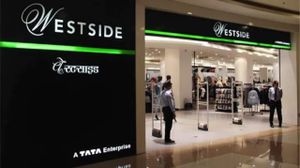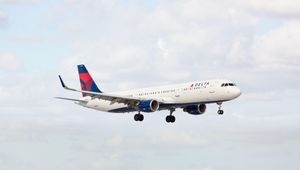Fast-food giant McDonald's announced significant changes to its HACER National Scholarship Program following legal challenges aimed at its longstanding ethnic criteria. Initially rolled out in 1985, the program was set up to provide scholarships exclusively for students with at least one Latino parent, but recent developments have prompted the company to open the program to applicants from all racial and ethnic backgrounds.
The shift was catalyzed by a lawsuit filed on January 12 by the American Alliance for Equal Rights (AAER), an organization known for its opposition to diversity, equity, and inclusion initiatives. The group asserted the HACER program was discriminatory against non-Hispanic applicants, stating, "Even after its civil-rights audit, McDonald’s has decided to continue a program... based on their ethnicity." This lawsuit was led by Edward Blum, who has previously challenged affirmative action policies and made notable legal advances concerning race-based preferences.
On Friday, McDonald's confirmed it has reached a settlement with the AAER, effectively transforming the eligibility criteria for the HACER scholarship. The new guidelines will no longer require applicants to have Latino heritage. Instead, the focus will shift to assessing how candidates exemplify their impact on, or commitment to, the Latino community. This strategic change is intended to preserve the integrity and accessibility of the scholarship program, with McDonald's stating, "We reached the conclusion... is the right thing to do for its recipients."
Blum praised the settlement, commenting, "McDonald’s has wisely agreed to end this discriminatory scholarship program. It is shameful... thousands of students were shut out of this program because they were not the preferred ethnicity." This response highlights the criticism of limited access based on ethnic backgrounds, especially as McDonald's has faced increased scrutiny over its diversity strategies.
Previously, the HACER program has awarded over $33 million to more than 17,000 students. McDonald's announced they had already received over 3,000 applications for this year's scholarship awards as of the settlement announcement. To allow additional applicants under the new criteria, McDonald's has extended the application deadline from February 6 to March 6.
The changes to the HACER program come as part of broader adjustments within McDonald’s corporate practices following the U.S. Supreme Court’s ruling against affirmative action plans. Earlier this year, McDonald's also retracted specific diversity objectives for higher corporate roles. They informed employees and franchisees about this shift, assuring them of the company’s continued commitment to diverse representation across their workforce.
Despite the criticisms faced from various quarters, McDonald's stated their commitment to inclusion remains firm, noting, "McDonald’s position and our commitment to inclusion is steadfast... our work is continually developing." This persistence suggests McDonald’s views diversity as not just good PR but as integral to their corporate identity and community engagement.
AAER has positioned itself as one of the significant challengers of race-based programs, arguing against any initiatives they see as ensuring preferential treatment based on ethnicity. This stance has gained traction alongside recent legal victories, making the outcome of McDonald's program adjustments particularly noteworthy as businesses reassess their diversity rode maps.
While McDonald's has agreed to settle the lawsuit and open opportunities to all students, the company did not explicitly acknowledge any wrongdoing by the previous program criteria. They emphasized, "We disagree with this claim," referring to AAER's assertion of discrimination. The core focus, they reiterated, is to maintain and continue providing educational opportunities to those who show dedication to the Latino community.
Going forward, leaders at the company will be observing the program’s evolution and its reception among potential applicants. McDonald's adjustments not only intend to restore their reputation but also align with larger societal shifts around inclusivity amid changing legal landscapes surrounding affirmative action and diversity.
With the future of the HACER scholarship now more inclusive, it remains to be seen how the new eligibility criteria will impact the applicant pool and whether McDonald's can effectively demonstrate its commitment to inclusivity without focussing solely on ethnic backgrounds.



